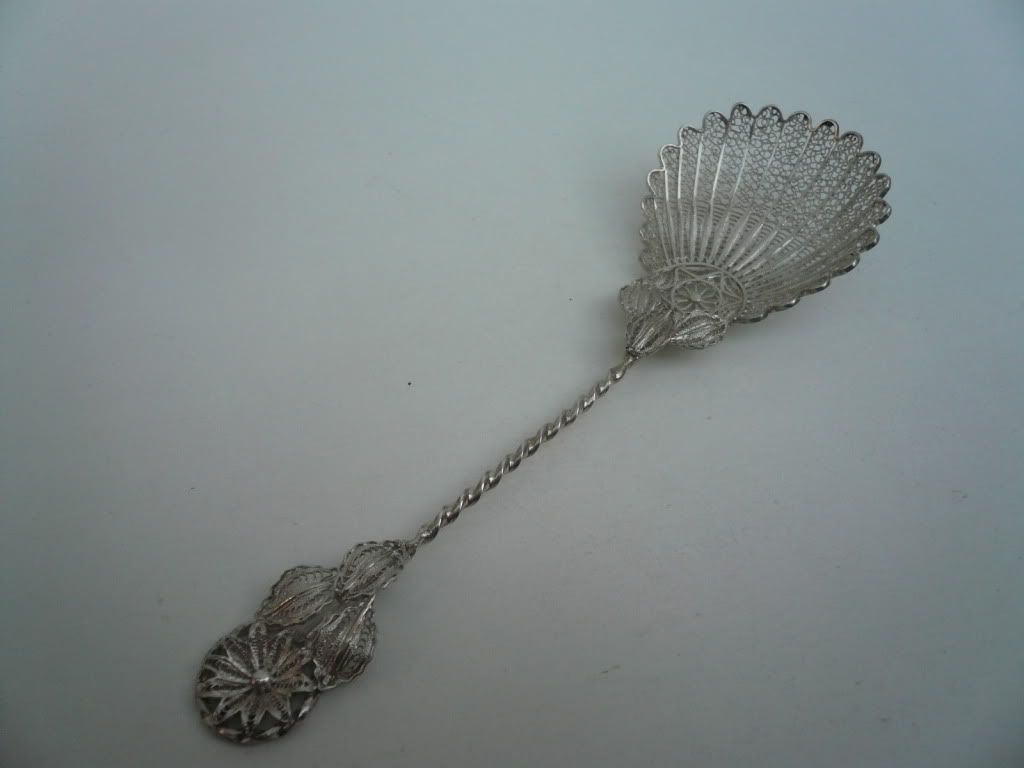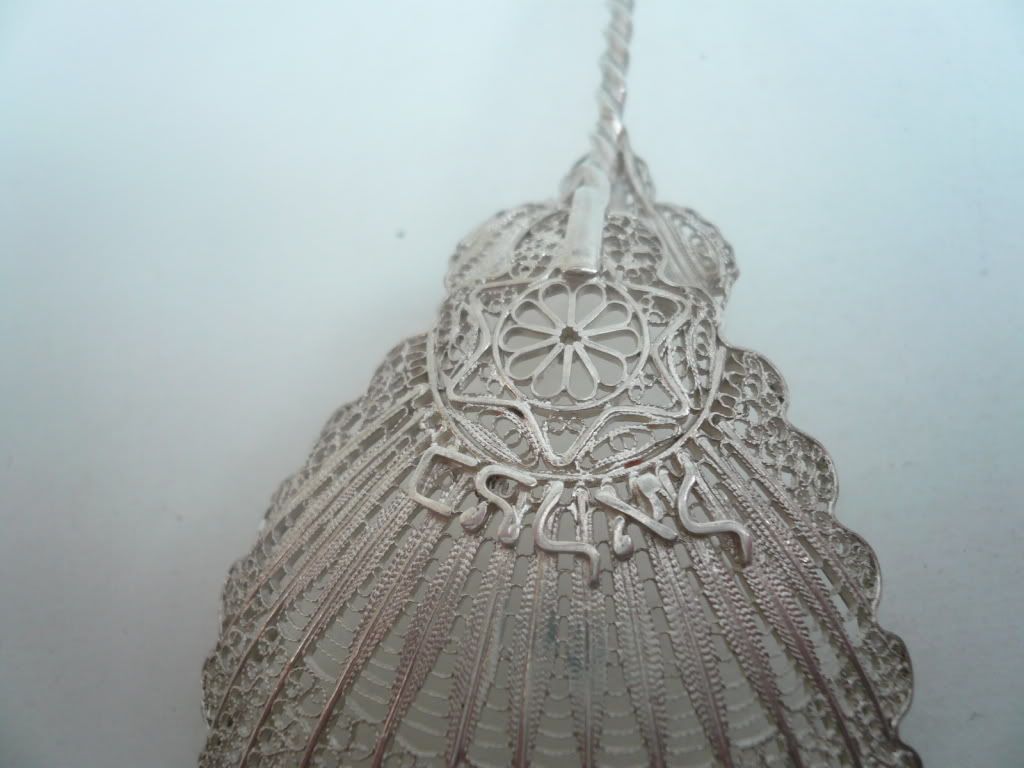I return to document a MINDBLOWING COINCIDENCE (and hat's off to Ringo for earlier pointing us in the right direction).
While there is no doubt that, as noted in my previous post, that the script on this spoon, upside down, has an uncanny resemblance to the word "India",
I can now report that THAT is all it is: an uncanny coincidence (especially considering that the original poster thought that the spoon had an origin in
India, and that significantly similar filigree work was indeed done in India).
No, the script, as Ringo posited, is absolutely (a slightly non-standard) Hebrew, executed by a Yemenite Jew at the Bezalel Academy in Palestine early in
the 20th century, as further explained here:
http://en.wikipedia.org/wiki/Bezalel_Academy" onclick="window.open(this.href);return false;
And what the script actually says is "Bezalel".
Following are two comp pics from auction catalogs, one of them incorrectly identifying a very similar spoon as "Polish", as well as two other pics, one of a
Hebrew ritual object bearing the "Bezalel" script, and one of a marked "Palestine" filigree bracelet...
(Sorry, when I tried to attach the images, I got a message that the board's pic quota had been filled. You can see the auction pages I mentioned attached to
(admin edit - see: How to Add Images - but please, no images from auction sites or catalogues, due to copyright issues.)


